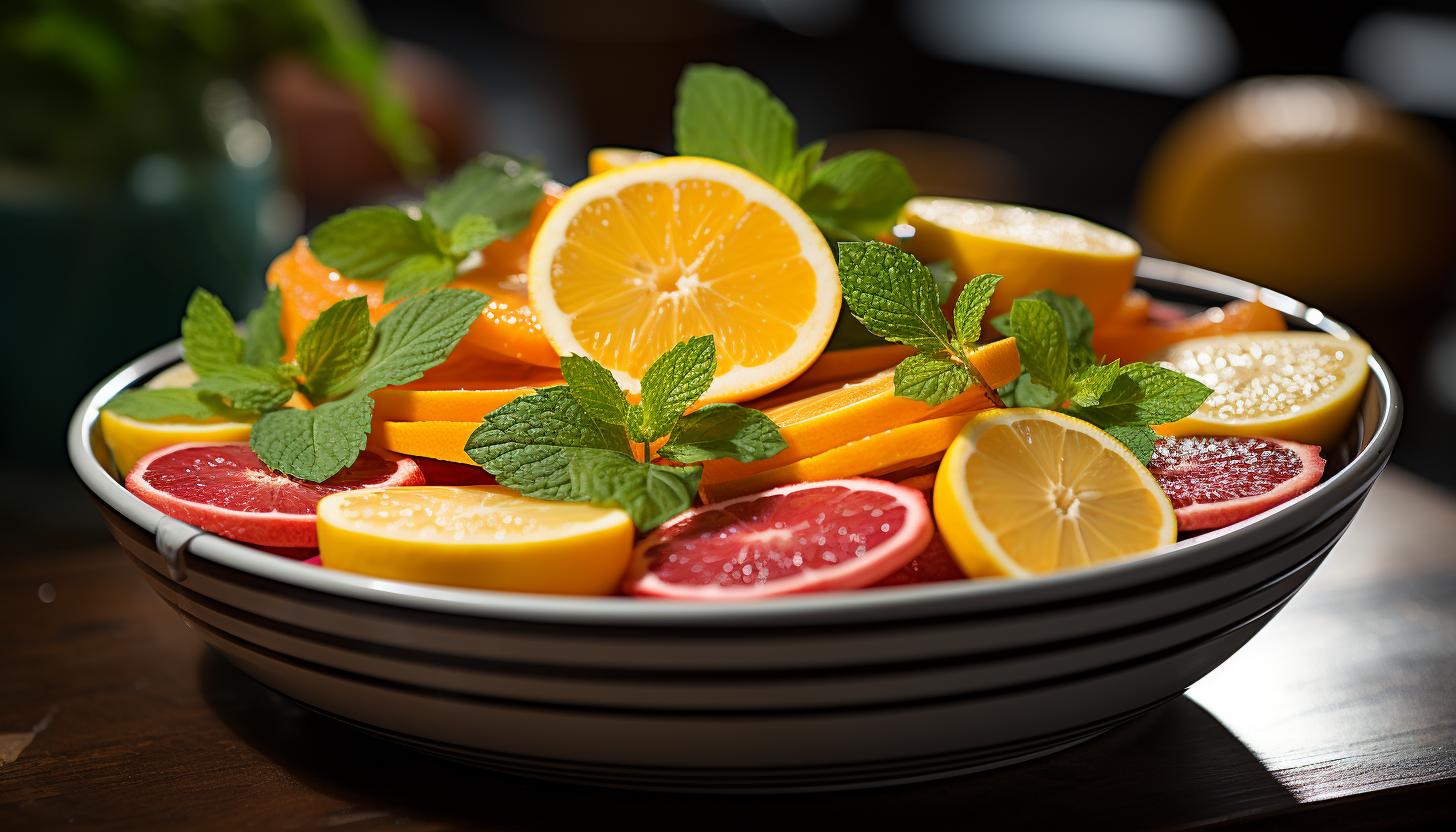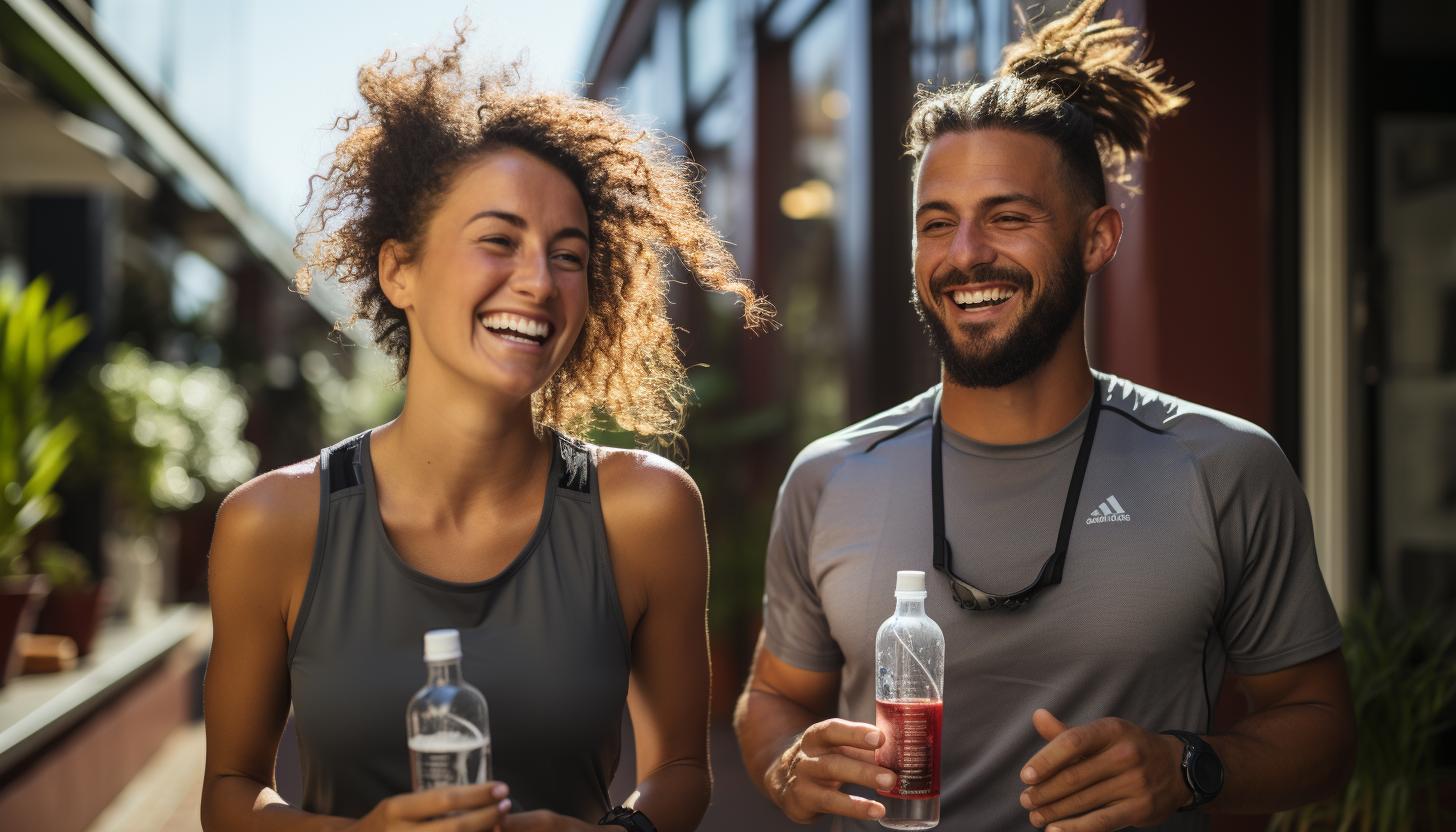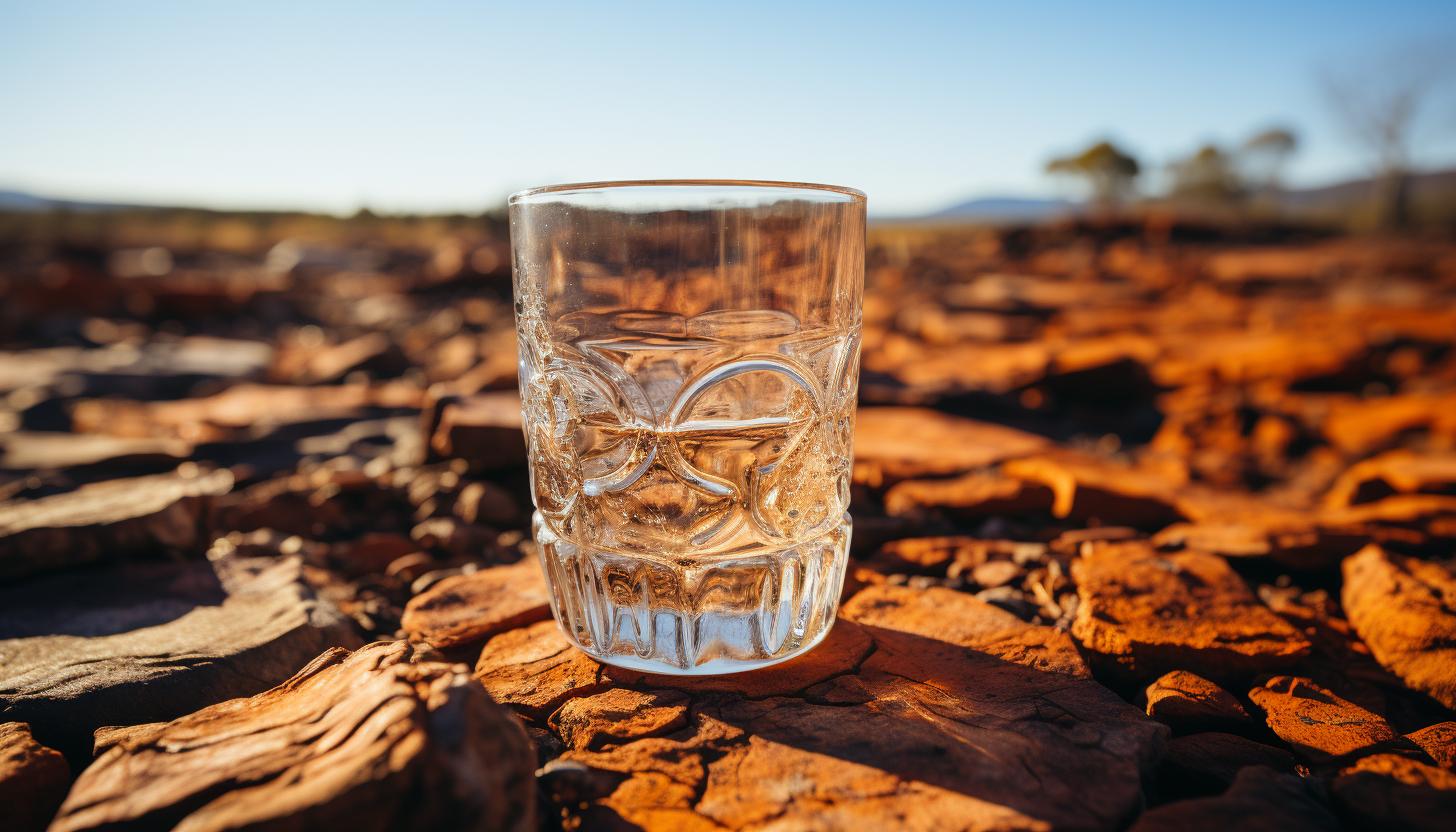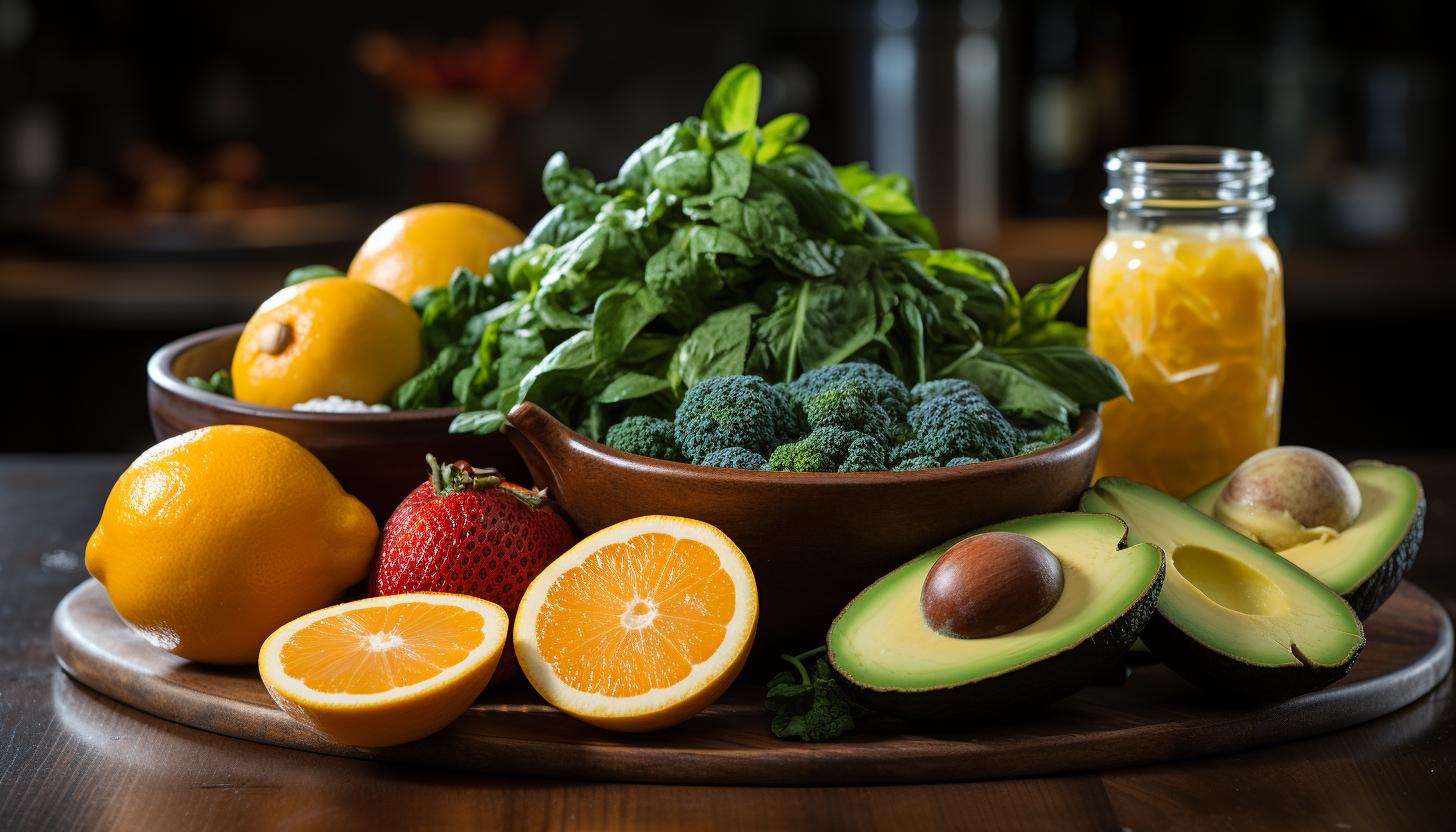Electrolytes and Hydration: What You Need to Know

Stay hydrated and energized with the essential knowledge on electrolytes. Learn why they matter, how to maintain optimal hydration levels, and ways to prevent common imbalances.
Discover the best sources of electrolytes and get tips for replenishing them effectively. Don’t let dehydration drag you down – empower yourself with this evidence-based guide to keep your body in balance.
Let’s dive into the world of electrolytes and unlock the secret to staying refreshed and revitalized.
The Importance of Electrolytes

Electrolytes are essential for maintaining proper hydration levels in your body. These minerals, such as sodium, potassium, and magnesium, play a crucial role in regulating the balance of fluids inside and outside your cells. When you’re properly hydrated, electrolytes help transport nutrients to your cells, remove waste products, and maintain the function of vital organs.
The importance of electrolytes cannot be overstated when it comes to hydration. They help regulate the amount of water in your body and ensure that it is distributed effectively. Without adequate electrolyte levels, even if you drink plenty of water, you may still experience symptoms of dehydration.
Proper hydration offers numerous benefits for your overall health. It supports optimal brain function by improving cognitive performance and concentration. Additionally, staying well-hydrated aids digestion by promoting regular bowel movements and preventing constipation. It also helps regulate body temperature and lubricate joints.
To maintain electrolyte balance and stay hydrated throughout the day, it’s important to consume a variety of foods rich in these minerals or consider using sports drinks or electrolyte supplements during intense physical activity or periods of excessive sweating.
Remember: Stay hydrated by replenishing both water and electrolytes regularly for optimal health and well-being.
Understanding Hydration Levels

Understanding hydration levels is crucial for maintaining optimal bodily functions. Dehydration can have serious consequences on your health and well-being, especially when you’re at work and need to stay focused and productive.
To help you stay hydrated throughout the day, here are three important things to keep in mind:
1. Recognize dehydration symptoms: It’s essential to be aware of the signs that your body is not getting enough water. Symptoms of dehydration include feeling thirsty, having dark-colored urine, experiencing dry mouth or lips, feeling fatigued or dizzy, and having a headache. Pay attention to these cues so you can address your hydration needs promptly.
2. Drink water regularly: Make a conscious effort to drink water consistently throughout the day, even if you don’t feel thirsty. Set reminders or keep a water bottle nearby as a visual cue. Aim for at least eight cups (64 ounces) of water per day. Remember that other beverages like herbal tea or infused water can also contribute to your daily hydration.
3. Optimize your workspace: Create an environment that promotes hydration by keeping a filled water bottle at your desk or within reach during meetings or tasks. Consider using apps or smart bottles that remind you to drink water regularly throughout the day.
Common Electrolyte Imbalances

To avoid common electrolyte imbalances, it’s important to be mindful of the types of food and drinks you consume. Electrolytes are minerals that play a crucial role in maintaining proper bodily functions. When these electrolytes are out of balance, it can lead to various symptoms such as muscle cramps, weakness, fatigue, irregular heartbeat, and even seizures.
One way to treat electrolyte imbalances is by replenishing the lost electrolytes through oral rehydration solutions or sports drinks that contain essential electrolytes like sodium, potassium, and magnesium. These beverages can help restore the balance in your body by providing the necessary minerals.
In addition to consuming electrolyte-rich fluids, incorporating foods high in these minerals can also help maintain a healthy balance. Foods like bananas, spinach, avocados, nuts, and seeds are excellent sources of potassium and magnesium. Including dairy products or fortified alternatives can provide calcium while adding table salt or consuming salty foods can help increase sodium levels.
It’s essential to seek medical advice if you suspect an electrolyte imbalance as severe cases may require intravenous treatment. Remember to stay hydrated and consume a balanced diet rich in essential minerals to prevent any potential imbalances that could negatively impact your overall health.
Best Sources of Electrolytes

Incorporating a variety of fruits and vegetables into your diet can help replenish essential minerals and maintain electrolyte balance. When it comes to ensuring adequate electrolyte intake, there are numerous natural options available that can provide the essential nutrients your body needs.
Here are three top sources of electrolytes:
1. Coconut water: Packed with potassium, magnesium, and sodium, coconut water is a refreshing way to hydrate while replenishing electrolytes naturally.
2. Bananas: These delicious fruits are not only rich in potassium but also contain other important electrolytes like magnesium and calcium.
3. Leafy greens: Spinach, kale, and Swiss chard are excellent sources of minerals such as calcium, magnesium, and potassium.
By incorporating these natural electrolyte-rich foods into your diet, you can ensure proper hydration and maintain optimal electrolyte balance. However, if you’re looking for an extra boost or need quick replenishment after intense physical activity or illness, you may consider using top electrolyte supplements available in the market.
Transitioning into the next section about ‘tips for staying hydrated and replenishing electrolytes,’ it’s important to remember that maintaining proper hydration is vital for overall health and well-being.
Tips for Staying Hydrated and Replenishing Electrolytes

When it comes to staying hydrated and replenishing electrolytes, remember that drinking water throughout the day and choosing hydrating foods like fruits and vegetables can help maintain proper hydration levels. This is especially important during exercise when your body loses fluids through sweat.
Hydration is crucial for optimal performance and preventing dehydration, which can lead to fatigue, muscle cramps, and decreased cognitive function.
During exercise, it’s essential to drink plenty of water before, during, and after your workout to replace the fluids lost through sweat. Aim for at least 8-10 cups of water per day, or more if you are engaging in intense physical activity.
In addition to water, incorporating electrolyte-rich foods into your diet can further support hydration. Foods such as bananas, oranges, spinach, coconut water, and yogurt contain essential electrolytes like potassium and sodium.
Electrolytes are minerals that help regulate fluid balance in the body. They play a vital role in maintaining proper muscle function and nerve transmission. By consuming these electrolyte-rich foods along with adequate water intake during exercise, you can replenish these essential minerals lost through sweating.
Remember to listen to your body’s thirst signals and drink enough fluids throughout the day to stay properly hydrated. Incorporating hydrating foods into your diet will not only provide you with necessary nutrients but also contribute to maintaining optimal hydration levels during exercise.
Conclusion
So now you know all about electrolytes and hydration! Remember, staying hydrated is crucial for your overall health and well-being. Make sure to replenish your electrolyte levels regularly, especially after intense exercise or in hot weather. Don’t forget to include foods rich in electrolytes such as bananas, spinach, and coconut water in your diet.
And here’s a case study to illustrate the importance of electrolytes: Sarah, an avid runner, noticed she was feeling fatigued during her long runs. After consulting with a doctor, she discovered that she had low levels of potassium, one of the key electrolytes. By incorporating more potassium-rich foods into her diet and drinking electrolyte-enhanced sports drinks during her runs, Sarah regained her energy and improved her performance on the track.
Stay hydrated and keep those electrolytes balanced!






